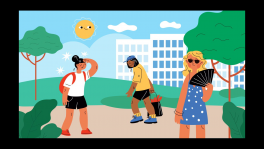How the song 'Coffee House' was born
"I felt ecstatic reading that piece of paper. I finally felt like the song was completed. But I was going to Bombay in four days for a show. I took it with me and left for the show. I laid down on the train, opened the paper in the blue light of the room and started composing. Then Manna Dey blessed it with his voice. The rest, as they say, is history" – Gauri Prasanna Majumdar

In 2006, a BBC Bangla survey revealed the top 20 Bangla songs of all time, among which 'Coffee Houser Sei Addata Aaj Aar Nei', an enduring classic sung by the legendary musician Manna Dey, charted fourth.
It has been almost nine years since the passing of Manna Dey. Gauri Prasanna Majumdar, the lyricist of the song has also passed away. The composer of the song, Suparna Kanti Ghosh, is currently living in Kolkata. He recently traveled to Bangladesh and The Business Standard pounced on the chance to meet him.
He came here to record two songs. One of the songs glorifies the month of March and another is for the upcoming birthday of Prime Minister Sheikh Hasina. Both songs were written by Bangladeshi lyricist Pannalal Dutta. Two young artists Yusuf Khan and Priyanka Biswas provided vocals for the songs.
We asked him to retread the origins of his most popular song, to which he said, "I have talked so much about it that there is nothing new to say."
The story behind the seminal coffee house song
Gauri Prasanna Majumdar was friends with Ghosh's father, Nachiketa Ghosh. He used to visit them often. At the end of 1982, when Ghosh was studying at Kolkata University, his father passed away.
"It was a very difficult time for me, I had to live my life, continued studying, and I composed a few songs at the time."
Gauri Prasanna Majumdar continued to visit them, even after Ghosh's father's passing. One day he came to their house. Ghosh remembers Majumdar had a sore throat that day, and had dropped by to drink some tea.
Ghosh was in another part of the house and hanging out with a couple of his friends, it took awhile to bid them goodbye before he could devote his full attention to Majumdar. When he finally got to him, Majumdar chided him for making him wait too long. A bit of verbal sparring ensued, Majumdar accused Ghosh of ignoring him for his friends.
"Hey Khoka, have you become a bigger composer than your father? You are keeping me waiting," said Majumdar .
"I didn't know you were here, kaka," replied Ghosh .
"You're ignoring me and hanging out with your friends. You're not smoking cigarettes with them are you?"
"You're talking about friends hanging out? Can you write a song about it?"
They essentially had a small back-and-forth but it ended with the two deciding to write a song together.
"After giving it some measure of thought he dictated to me (as he wasn't feeling well enough to write): 'Coffee houser sei addata aaj aar nei. Kothay hariye gelo shonali bikel gulo shei.'"
Suparna Kanti Ghosh said that Majumdar went to his home then and completed most of the song within two to three days. He had however gotten stuck on the final verse of the song. They had many more artistic and stubborn fights over them.
One day on his way to get medical treatment, Majumdar paused at Hawrah station and wrote down the last verse on a white paper from inside a pack of cigarettes. Then he called someone from the station and said, "My name is Gauri Prasanna Majumdar. This paper has to be delivered to Suparna Kanti Ghosh. His home is at the East Alipore Petrol Pump." A day later the gentleman came and handed Ghosh the paper.
"I felt ecstatic reading that piece of paper. I finally felt like the song was completed. But I was going to Bombay in four days for a show. I took it with me and left for the show. I laid down on the train, opened the paper in the blue light of the room and started composing. Then Manna Dey blessed it with his voice. The rest, as they say, is history"
Suparna Kanti Ghosh composed 56 songs sung by Manna Dey. When asked about his relationship with him, Ghosh replied, "My father had a very good relationship with him. A friendship that was passed down to me, we were very close, we used to talk about diverse topics including music."
Ghosh's family wanted him to be a doctor, because everyone in the family was involved in the medical profession. We asked him if he had any regrets about not being a doctor?
He said, "If everyone became doctors, there would not be a 'Coffee houser Adda', or so many other memorable songs like 'She Amar Choto Bon'. Also I would have had to spend my life with clamps and scalpels. I did not want that. I am glad about the decision I took."
Lastly, we wanted to know whether there was any particular song he passionately created but was not appreciated by the listeners.
After thinking for a while, he said, "It's a good question. As far as I remember, I did a second part of the Coffee House song called 'Coffee House Phire Elo' or 'The Coffee House Returns'. But the song was not marketed properly. Nobody knew about it. And Manna Dey was well past his glory days. All in all, the song did not reach the audiences."


 Keep updated, follow The Business Standard's Google news channel
Keep updated, follow The Business Standard's Google news channel
















